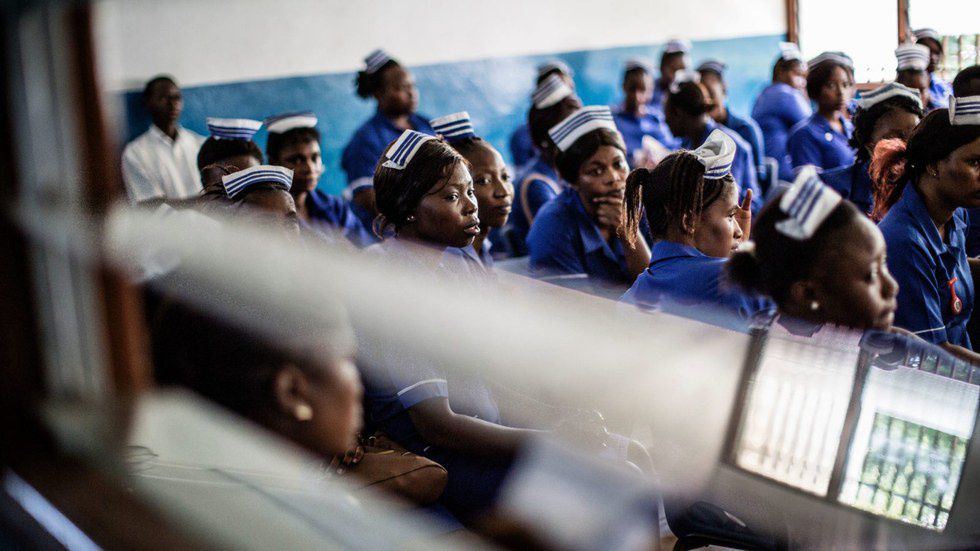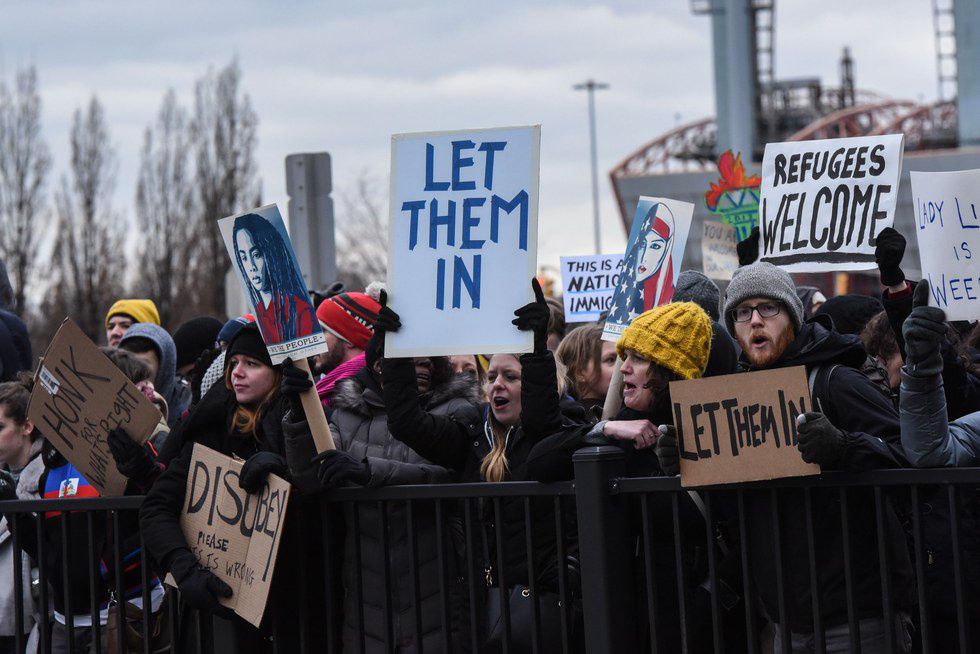On Friday, January 20, 2017, Donald Trump became America's 45th president. Of course, as with everything, there was approval, indifference and disgust in response to his inauguration. But aside from the fact that Donald Trump is now our president, what does it mean for us? What will he do now? How will it affect us? Are we safe? Is it all just flippant promises?
To start off with, one of Trump's first act of presidency was signing an anti-abortion executive order that reinstates Ronald Regan's anti-abortion "global gag rule." Signed on Monday, this rule "prohibits foreign non-governmental organizations (NGOs) that receive U.S. family planning funds from advocating for abortion or providing abortion as a method of family planning."
The global gag rule not only hampers HIV prevention efforts and prevents women and girls from accessing contraception and safe abortion consistent with the laws in their countries, it also has the potential to negatively affect the speed and effectiveness of humanitarian aid. It even obstructs rural communities' access to health care, among other things.
Trump's cabinet is more white and more male since Reagan was in office, and this doesn't bode well for minorities or women.
But that doesn't mean that action isn't being taken against Trump's action. Senator Jeanne Shaheen (D-N.H) says that she is "planning a legislative response" to the gag rule.
“I will continue to stand up to President Trump and Republican leadership in Congress who are intent on rolling back women’s access to reproductive healthcare, and will soon be introducing bipartisan legislation aimed to repeal the Global Gag Rule for good,” the senator said.
“Women around the world deserve to make important personal health care decisions without politicians in Washington interfering.”
(Above are midwifery students in Sierra Leone, which has one of the highest maternal mortality rate in the world. Funding for safe pregnancy and delivery worldwide is threatened by President Trump's reinstatement of the global gag rule).
Perhaps the most appalling of Trump's recent acts is his immigration ban (signed on Holocaust Remembrance Day) on citizens from seven Muslim-majority countries in the Middle East, including the war-ravaged Syria.
Under this executive order, there will be a 120-day ban on virtually all refugee nationals, and those from the seven banned countries will not be admitted into the U.S. for 90 days.
“We don’t want them here,” said Trump during the signing ceremony on Friday.
“We want to ensure that we are not admitting into our country the very threats our soldiers are fighting overseas.”
But is that really what he means? It's important to not miss out on the fact that his ban doesn't include countries where the Trump Organization has done or pursued business.
Countries not included in the ban are: Saudi Arabia, Turkey and Egypt — all of which house Trump-branded golf courses and luxury towers. Furthermore, his immigration restriction doesn't include countries that have been linked to Muslim terrorist attacks since 9/11. Countries omitted from the list include Egypt, Saudi Arabia, Pakistan, United Arab Emirates and Kuwait — places where terrorist action has been carried out. Meanwhile, no fatal attacks have originated for nearly four decades from the countries on the list.
Not only will his order make it impossible for citizens of those Muslim countries to enter the United States, but it'll affect those foreigners with visas. The order will cancel the Visa Interview Waiver Program and require repeat travelers to have an in-person interview.
Already many are speaking out, with the business sector leading the way.
Google, for instance, asked their employees to fly back to America while Netflix CEO and founder posted on Facebook: "Trump's actions are hurting Netflix employees around the world, and are so un-American it pains us all."
Apple CEO Tim Cook declared that "it is not a policy we support," and that "Apple would not exist without immigration."
As America holds its breath, waiting for Trump's next move, there's one thing for sure. Nothing Trump does will go unnoticed, both domestically and internationally, and those actions will affect how America is represented as a country. We can only hope that Trump will realize the extent of his actions and reform his ways. In the meantime, we can protest, discuss and peacefully show our objections so our voices are heard.








 Energetic dance performance under the spotlight.
Energetic dance performance under the spotlight. Taylor Swift in a purple coat, captivating the crowd on stage.
Taylor Swift in a purple coat, captivating the crowd on stage. Taylor Swift shines on stage in a sparkling outfit and boots.
Taylor Swift shines on stage in a sparkling outfit and boots. Taylor Swift and Phoebe Bridgers sharing a joyful duet on stage.
Taylor Swift and Phoebe Bridgers sharing a joyful duet on stage.













